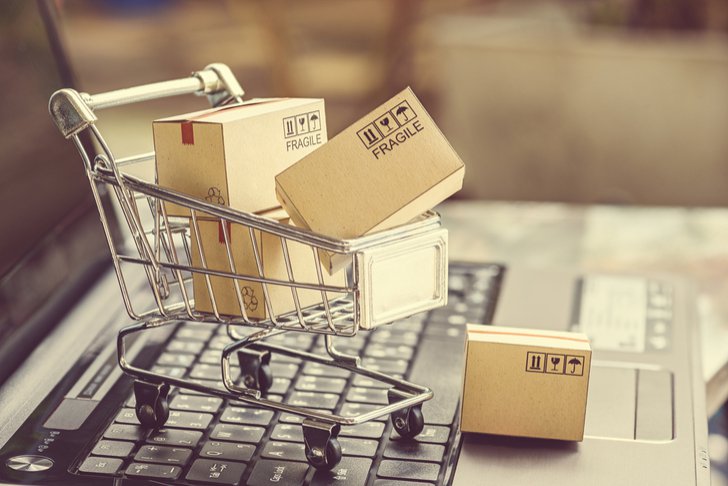COVID-19 pandemic accelerating online grocery adoption
Flipkart says it is working closely with its marketplace partners to ensure adequate availability of consumer sanitary products like hand sanitizers, gloves, and masks as these products may be out of stock due to high customer demand.

As communities across the world are practicing social-distancing as a precautionary measure against COVID-19, online retailers are ramping up their business operations to keep up with the unprecedented surge in demand for fresh groceries and household essentials. People are avoiding visits to brick-and-mortar stores and are increasingly preferring online grocery shopping while staying safe at home.
E-commerce giant Amazon recently said it is out of stock on some popular brands and items, especially in household staples categories. To meet the surge in demand during this crisis, Amazon has announced the opening of 100,000 new full and part-time positions in its fulfillment centers and delivery network across the United States.
"We are seeing a significant increase in demand, which means our labor needs are unprecedented for this time of year. We are working around the clock with our selling partners to ensure availability on all of our products, and to bring on the additional capacity to deliver all of your order," says Amazon.
According to app analytics and business intelligence firm Apptopia, grocery delivery apps are breaking their own records for daily downloads. For instance, online grocery delivery service Instacart that delivers products from more than 25,000 stores across 5,500 cities in the U.S. and Canada has witnessed a surge of 218 percent. Similarly, Walmart Grocery and Shipt have seen surges of 160 percent, and 124 percent respectively.
Indian grocery e-tailers such as Bigbasket, Grofers have also witnessed a significant surge in demand due to panic buying in the past few days. Bigbasket, the Bengaluru-based online grocery startup that deals with over 15,000 products comprising groceries, fruits and vegetables, and a wide range of household products observed a two-fold increase in its traffic and revenue with basket value increasing by 15-20 percent.
Grofers, on the other hand, which operates in 25 cities across India saw an 80 percent surge in demand in some cities. Amidst the panic buying, the company said currently all its essential supply chains are functioning normally and it will stick to honest pricing, more particularly for some items which have hard caps on production and that are sourced from China.
"We are seeing average ticket sizes which are way higher than normal and more customers are preferring to take the online route to grocery buying vs going to local markets or supermarkets," the local delivery company said.
In Australia, Coles Supermarkets has placed limits on purchase on certain items including toilet papers, pasta, flour, dry rice, paper towels, paper tissues, and hand sanitizers to ensure all customers have access to necessities during this time of unprecedented demand. Coles has also temporarily suspended Click&Collect deliveries due to lower product availability in stores. From Wednesday 18 March, the supermarket giant is also launching a dedicated “Community Hour” in all supermarkets to improve access to essential groceries for the elderly and disadvantaged.
Flipkart says it is working closely with its marketplace partners to ensure adequate availability of consumer sanitary products like hand sanitizers, gloves, and masks as these products may be out of stock due to high customer demand.
British supermarket Tesco has also put purchase limitations on certain essential products in view of the exponential surge in demand. Similarly, other online supermarkets are struggling to fulfill the unprecedented demands arising out of coronavirus panic buying.
Protecting shoppers community
To accommodate demands, e-tailers are working around the clock whilst taking the appropriate precautionary measures to operate safely. FreshDirect, a leading online grocer in the US is providing touchless delivery to keep its customers, products, and employees safe. In line with its touchless delivery process, the online grocery delivery service is not collecting delivery bags, but encouraging shoppers to reuse them and also offering e-tip functionality for customers who prefer cash on delivery.
In light of the ongoing developments, Instacart recently announced new health and safety guidelines, resources, and investments to protect the shopper's community. The e-tailer has rolled out “Leave at my Door Delivery", a feature that gives customers the flexibility to have their groceries delivered without having to come to the door or be at home, to all Instacart customers across North America. The feature was originally designed to provide a more flexible option for customers that may not be home at the time of delivery.
Grofers has implemented stringent screening criteria at its facilities to ensure the safety of its employees and is taking necessary precautions as advised by WHO on prevention of the spread of Covid-19. It has also suspended travel between locations and offices and the delivery professionals are being monitored and trained on the handling of sealed crates which are being washed and disinfected after every usage.
Flipkart, Amazon and other e-retailing companies are adhering to the World Health Organization’s hygiene advisory during deliveries. Flipkart is providing all its wishmasters sanitizers and other required equipment to use while they are on the go, and are keeping track of impacted areas to minimize their exposure. The e-commerce giant has also organized awareness sessions on how our employees and partners can minimize their exposure by following simple precautionary measures.
(Disclaimer: The opinions expressed are the personal views of the author. The facts and opinions appearing in the article do not reflect the views of Devdiscourse and Devdiscourse does not claim any responsibility for the same.)
- FIRST PUBLISHED IN:
- Devdiscourse










